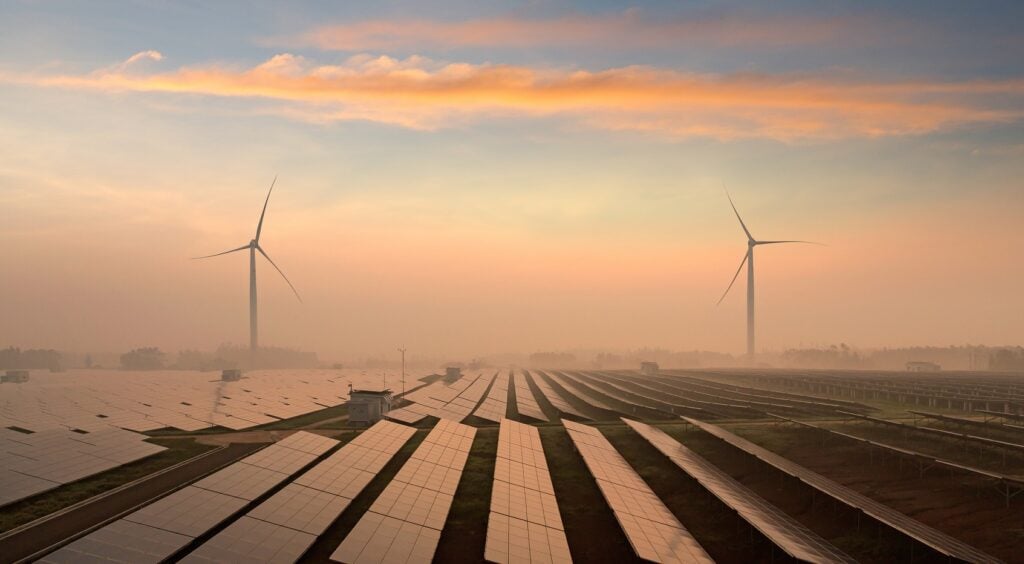Decarbonisation of the UK’s energy supply is slowing, Ofgem has warned, while the cost of balancing the UK’s power system spiked to its second-highest ever in 2017/18.
Today Ofgem published this year’s state of the market report, the regulator’s annual publication which summarises the key trends and themes witnessed across areas such as competition, decarbonisation and security of supply.
This year’s document issues a stark warning for the UK; decarbonisation of energy has retracted to its slowest rate of decline since 2012. Britain emitted around 12 million fewer tonnes of carbon in 2018 than it did the year before, with transport and heat continuing to be the laggards.
The transport sector, Ofgem revealed, had seen emissions fall by just 2% between 2010 and 2018.
The conclusion will make for grim reading considering the UK’s now legally binding target of eliminating all carbon emissions from the economy by 2050. The energy sector will have to do considerable heavy lifting to reach that target, and the Committee on Climate Change has already warned that a raft of new policies, and substantial renewables deployment between now and 2030, will be necessary to hit that target.
Joe Perkins, chief economist at Ofgem, said that while the state of the market report shows the progress made so far, it highlights how “much more needs to be done”.
“We want the UK to remain a global leader in bringing down greenhouse gas emissions, and our major objective is to help the country rise to the challenge of cutting emissions to net zero by 2050 at the lowest possible price to consumers,” he said.
In a speech made today, Ofgem chairman Martin Cave echoed Perkins’ sentiments, stating that it was important to recognise both the progress made and challenges that lay ahead for decarbonisation.
But with the government now moving away from direct decision making in the energy market, Cave said that the regulator could find itself playing a bigger role in net zero preparations, adding that Ofgem was now “hardwiring” its decarbonisation objective into all of its policy decisions.
“Of course, the journey to 2050 is a long one filled with uncertainty. There is no energy sector equivalent of a sat-nav to chart the single most effective, fastest and lowest cost route to this destination today.
“Whether it’s for power generation, transport or heat, we will only support proposals which offer the best value, most effective and fastest route to decarbonisation. So that each pound from consumers’ energy bills gets the biggest bang for their – and the planet’s – buck,” he said.
Gillian Guy, chief executive at Citizens Advice, said the slowing down in emissions reductions brought the government’s net zero target “into sharp relief”.
“Much of the current debate is focused on the technical questions of how this can be achieved. But there is another public conversation which needs to be had – who pays for the transition to a low-carbon economy and how do they pay?
“Ofgem’s decision to focus on limiting the costs paid by consumers is welcome. But we believe the Treasury is best placed to look comprehensively at the issue of who pays and should establish an independent commission to ensure the costs of reaching net zero are fair to everyone.
“Current efforts to decarbonise are largely paid for through people’s bills – an approach which disproportionately hits the poorest in society. We cannot get these difficult decisions about decarbonisation wrong, because it will be those who can least afford it who will pay the price.”
Balancing costs spike and networks’ ‘above expectations’ returns
Meanwhile, the state of the market report has also revealed that in 2018/19, Ofgem paid around £1.19 billion in system balancing costs, the second-highest ever paid by the regulator in a delivery year.
Second only to the £1.21 billion paid in 2016/17, it represented a 10% jump in system balancing costs year-on-year. That rise was attributable to higher system costs overall, created by the growth in renewables outpacing the growth in transmission capacity.
However it was better news for the regulator in relation to the ongoing suspension of the Capacity Market, which it said had “little appreciable impact” on electricity margins despite the emergence of new risks to security of supply.
Next month could be particularly important for the future of the Capacity Market and current arrangements for participants. Tempus Energy will see its challenge against the government heard at the High Court, and a verdict in Tempus’ favour could see the government forced to recoup all payments made to generators under the mechanism.
Ofgem also had cautious words for the UK’s network companies. In statements that only stand to tee up the looming RIIO-2 price controls further, Ofgem today said that network companies were making returns above the regulator’s expectations, with many achieving returns on equity of 10% or higher.
Ofgem said that, in hindsight, those allowed returns were too high, and Cave stressed that there would no longer be “blank cheques” for networks or other energy companies to provide services to the system.






